

The Latest Crazy Solution To the Debt Ceiling: IOU’s
Welcome to the latest crazy scheme to avoid reality.


Welcome to the latest crazy scheme to avoid reality.
Once again, a natural disaster has caused a common economic fallacy re resurface.

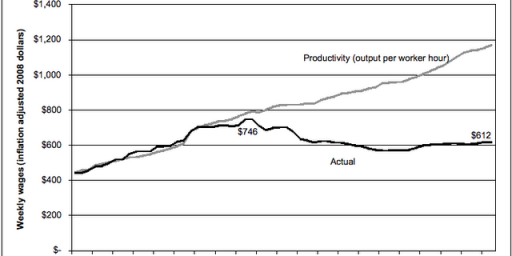
What happened in 1970 to decouple wages and productivity?
Two liberal columnists say a recent Mitt Romney ad proves he’s out of touch—and implies that he’s running a racist stealth campaign.

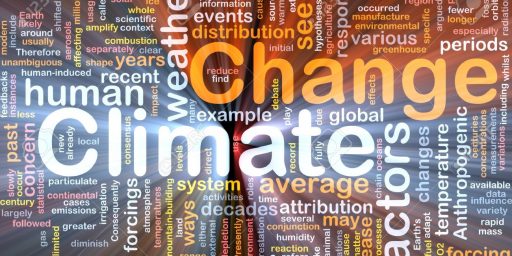
Our psychological and cultural biases make evaluating information and arguments rationally next to impossible.
Paul Krugman’s latest column, “Depression and Democracy,” is simply bizarre.


Did Congress cause the mortgage crisis by mandating loans to poor people? No.
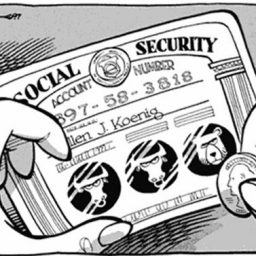
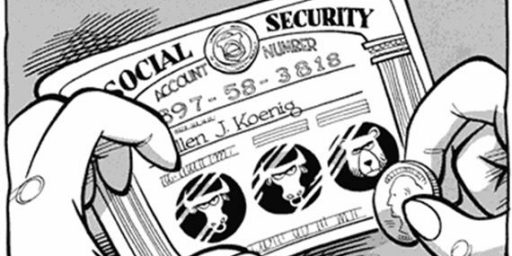
Social Security outlays are exceeding its income. Is that really a problem?
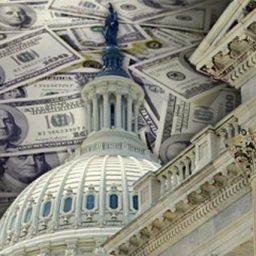

With the advantage of hindsight, it’s clear that more creative strategies were needed. But they probably couldn’t have been passed.


Elizabeth Warren has a deeply flawed view of our social contract.


Paul Krugman seems to believe that something like the bubble economy we enjoyed until it burst in 2008 could be had again if only our leaders were sufficiently bold.


Contrary to what Eugene Robinson and Paul Krugman argue today, compassion does not require one to support government social welfare programs.


Accusing someone of “politicizing” a discussion of 9/11 is like accusing someone of “athleticizing” a discussion of football.


Paul Krugman chose to mark the the 10th anniversary of September 11th with an odd blog post.


It never ceases to amaze me how many smart people manage to believe, against all evidence to the contrary, that their political philosophy has massive support.
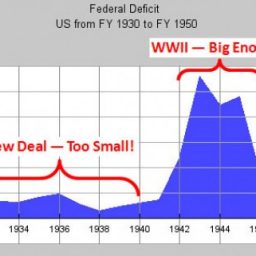
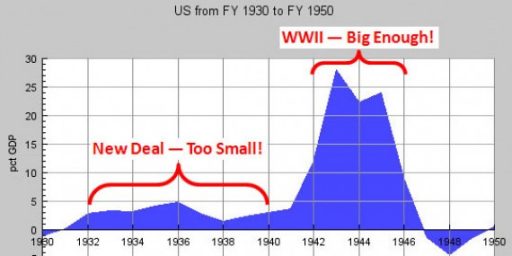
Did World War II teach us anything about spending-as-stimulus? Not really.


Repeating the “destruction creates wealth” fallacy every time there’s a natural disaster doesn’t make it any less of a fallacy.
Either a bunch of bloggers or one of the world’s smartest economists doesn’t understand economics.


According to Paul Krugman, what the American economy needs is for a bunch of space aliens to invade us.
Upon further review, S&P’s downgrade of the United States bond rating . . . still makes no sense.


While it’s hard to argue with S&P’s political analysis, its economic judgment is a head-scratcher.
Now that America’s political leadership have probably averted a self-inflicted global economic calamity, it’s time to assess the winners and losers.


While unemployment remains stubbornly high, Washington is spending its time fighting over the budget deficit


Paul Krugman thinks liberals understand conservatives but not vice versa. He’s half right.


A profile of George Mason economist and blogger Tyler Cowen offers this amusing description: “Cowen, 49, has round features, a hesitant posture, and an unconcerned haircut.”


Rand Paul has borrowed a bad idea from the 2008 Presidential campaign.

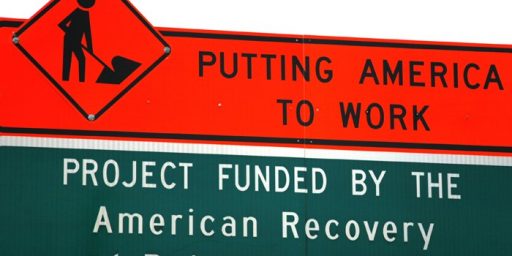
Ohio State researchers: ARRA created/saved approximately 450 thousand state and local government jobs and destroyed/forestalled roughly one million private sector jobs.


A study shows that most national columnists and talking heads are about as accurate as a coin flip.


Paul Krugman is disappointed with the President, but it’s really his own fault for being so naive.
Paul Ryan unveiled an ambitious plan to cut the deficit today. The question is whether it will be the beginning of a debate, or an opportunity for Democratic demagoguery


Philip Greenspun wonders, “How did the New York Times manage to spend $40 million on its pay wall?”
Paul Krugman admits that he doesn’t bother to read conservative commentary. Should he?


There is a problem with political rhetoric in this country, but telling people to be nicer to each other isn’t going to cool it down.


The tragic shooting of Congresswoman Gabrielle Giffords and 19 others in Arizona has started another debate about political rhetoric. It’s a stupid debate, and it’s utterly pointless.
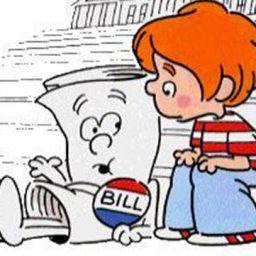

Republican maneuvering to extend the Bush tax cuts for all Americans appears about to pay off.